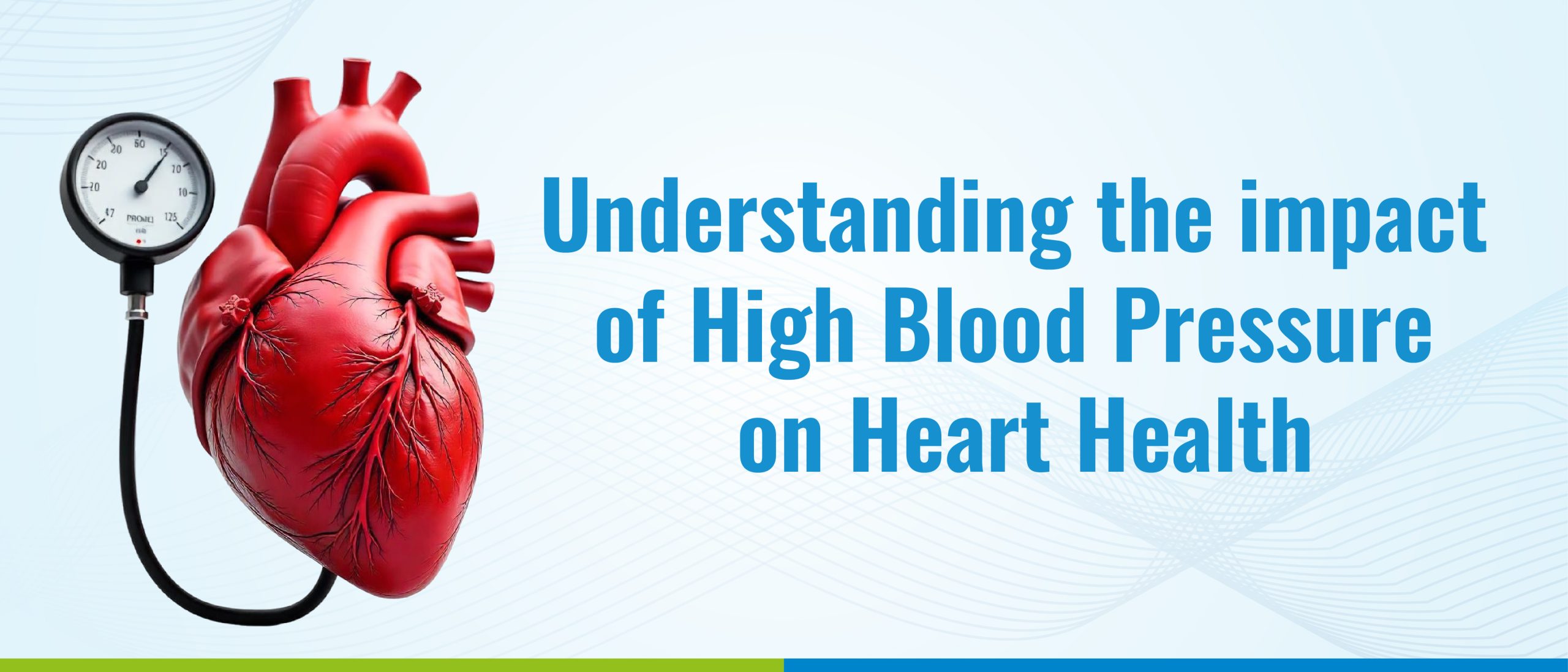Understanding the Impact of High Blood Pressure on Heart Health

Hypertension is often called a “silent killer” because you often will not have a physical experience that makes you aware of having high blood pressure. But just because you do not feel anything at the moment, does not mean this hypertensive process is not out there destroying you and your body, and your heart. We will talk about how high blood pressure damages your heart health, how hypertension happens, and highlight some easy alterations to make that help reduce your blood pressure, and help you live a longer and healthier life.
What is high blood pressure?
Hypertension occurs when the pressure of the blood on your arteries is regularly too high. If you leave high blood pressure untreated for long enough, the pressure can lead to serious conditions, sicknesses, and eventually death. When you have regular high blood pressure, the result can create damage to your arteries, and your heart will have to work hard which puts you at risk for heart attack.This explains a major impact of hypertension on heart health.
Consequences of High Blood Pressure for the Heart
High blood pressure can create acute and chronic injury to the heart including:
-
Strain on the Heart Muscle:
The heart is pumping extra hard for extended period to move blood through a narrowing artery and then it has to dilate, then the muscle thickens (myocardium) quite substantially, especially with the left ventricle (left ventricular hypertrophy-LVH). If the myocardium becomes thick enough, it will start to develop “stiffness” and can’t contract as well, which may lead to heart failure. These are serious effects of high blood pressure on the heart’s function.
-
Risk of Coronary Artery Disease:
When blood is moving through arteries with high blood pressure, blood has the potential to injure the artery wall and potentially further risk for the plaque and progression of atherosclerosis, and a higher risk for the artery to narrow. Passively narrowed arteries have a further impact on the oxygenation status of the heart, and increases risk for angina, heart attacks or sudden cardiac arrest.
-
Atrial Fibrillation:
Hypertension may disrupt normal regulation of signals associated with electrical impulses conduction in the heart. In some situations the patient can have abnormal fast heart rates (i.e.atrial fibrillation); this can lead to increased risk when the patient develops atrial fibrillation.
-
Increased Risk of Heart Attack and Stroke:
Damaged arteries are more prone to clots and blockages, which can lead to life-threatening cardiovascular events.
Common Causes of High Blood Pressure
Understanding what causes high blood pressure helps in its prevention and management. Here are some of the major reasons for high blood pressure:
- Diets high in salt, saturated fats, and processed foods
- Physical inactivity and sedentary habits
- Smoking and/or excessive alcohol consumption
- Chronic stress or poor stress management
- Obesity or being overweight
- Family history of hypertension
- Underlying health conditions like diabetes, kidney disease, or hormonal disorders
- Aging, as blood vessels naturally stiffen with time
How to Manage High Blood Pressure
The good news is Hypertension is controllable. If you’re wondering how to reduce high blood pressure, here are ways to help you:
-
Eat Healthy:
You can follow the DASH diet (Dietary Approaches to Stop Hypertension) Which focuses on eating healthy fruits and vegetables, healthy lean protein, healthy whole grains and low sodium. At the very least you have changed your life by doing one thing first, which is limit your daily salt intake.
-
Exercise Regularly:
Exercise helps to strengthen the heart and circulatory system delivering fresh blood and oxygen to the body. Exercise could be taking a brisk walk, swimming, biking, dancing, and your target minimum is 150 minutes of exercise to be completed in one week.
-
Maintain a Healthy Weight:
Extra weight is extra pressure on the heart. Sometimes even a small weight loss will drop blood pressure.
-
Avoid Alcohol & Tobacco:
Reduce the amount of alcohol and tobacco you use. Both are contributors of high blood pressure and before turning into something more serious, do yourself a favor and limit your alcohol and tobacco use – do not damage your arteries anymore.
-
Manage Stress:
Schedule yourself time to rest and relax. You can do lots of different activities that help with stress levels, such as yoga, deep breathing, or journaling. Unmanaged stress will raise blood pressure.
-
Monitor Your Blood Pressure:
Regular monitoring helps you understand your patterns and determine whether interventions are working.
Conclusion
While high blood pressure cannot always be cured, it can be effectively controlled. The key is consistency. Long-term success comes from maintaining healthy habits and staying committed to follow-ups with your healthcare provider. Many people live long, healthy lives with well-managed hypertension.
Even if you’re feeling fine, it’s essential to stay alert. Routine checkups, lifestyle choices, and early interventions are the foundation for long-term heart health. If you’ve been diagnosed with high blood pressure, take it seriously and act today—it could save your life.
